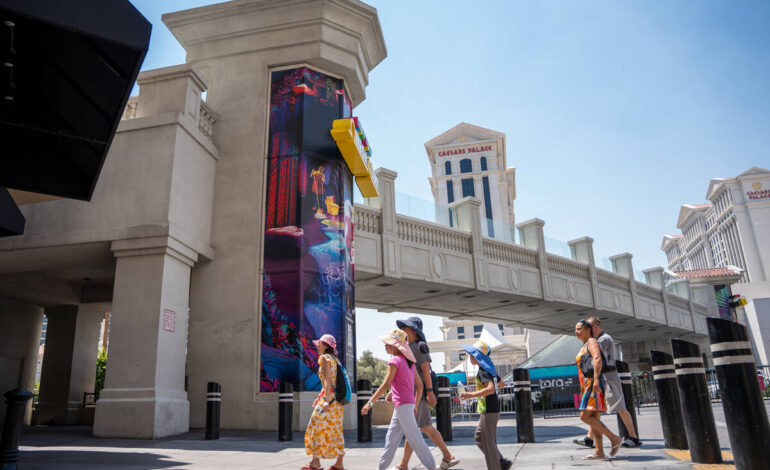Unpacking Casino Costs: Is Union Influence the Real Issue?

In a recent letter addressing Victor Joecks’ column concerning the decline in casino profits, the author challenges the notion that union demands are solely responsible for rising costs on the Las Vegas Strip. Instead, they highlight a significant disparity in compensation within the industry, raising questions about the broader implications of such financial trends.
According to data from various sources, CEO pay in the gaming industry surged by 31.7 percent from 2020 to 2024, reaching an average of $16 million per year. In stark contrast, the median worker in 2024 earned just $43,880, resulting in a staggering 419-to-1 ratio of CEO pay to that of the average employee. This disparity raises concerns about the sustainability of labor costs in an industry that has seen room rates escalate by 70 percent since 2015.
Visitor numbers to Las Vegas have also seen a notable decline, with 177,600 fewer visitors recorded year-to-date compared to previous years. This downturn appears to disproportionately affect tourists from Mexico and Canada. The author suggests that GOP tariffs and stricter U.S. foreign policies have a significant impact on Las Vegas, possibly more than on other cities and states. They argue that comparing Las Vegas to Florida, as Mr. Joecks does, overlooks crucial differences between a city and a state, particularly in the types of tourism each destination attracts.
Las Vegas is characterized by a focus on non-family tourists, who often have more limited activities available to them compared to the diverse offerings in Florida, which caters to families with varying budgets. This distinction could play a critical role in how each location’s tourism economy responds to external pressures.
Interestingly, the author points out that local casinos have reported record earnings during the same timeframe despite having unions and high labor costs, casting doubt on the argument that unions are to blame for increased operational expenses. This suggests that factors beyond labor costs may be influencing the financial health of casinos in Las Vegas.
Ultimately, the dialogue surrounding casino profitability and labor costs in Las Vegas necessitates a nuanced understanding of the interplay between executive compensation, market conditions, and the evolving landscape of tourism. As the industry grapples with these challenges, the potential for a more equitable distribution of earnings could become a focal point for future discussions.






